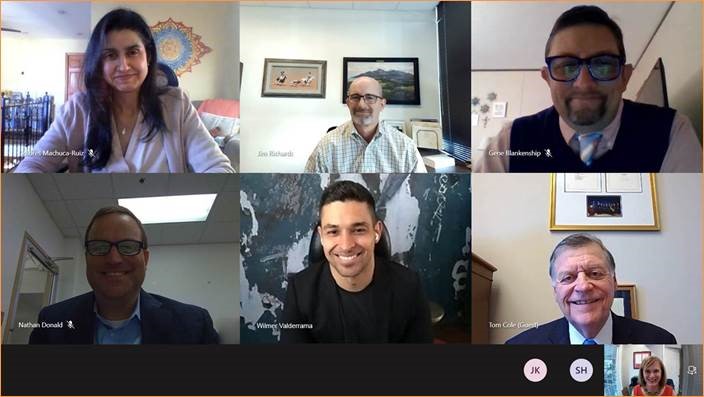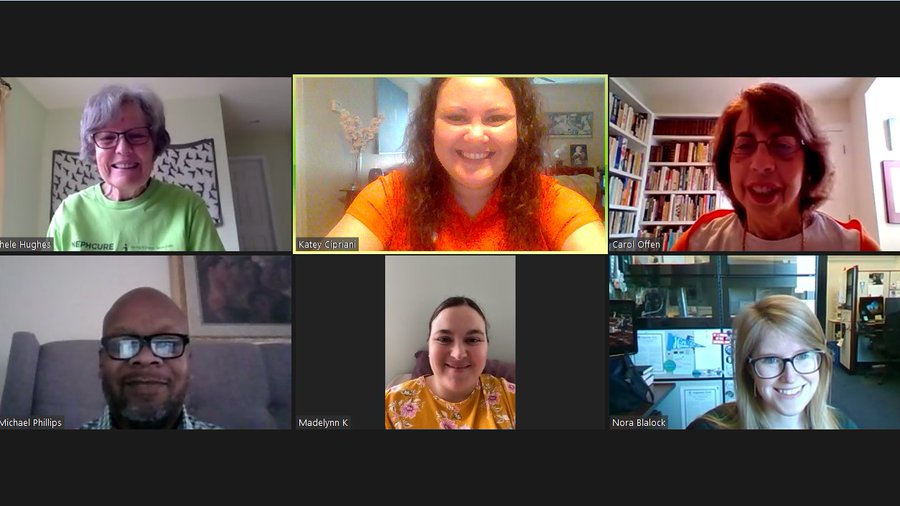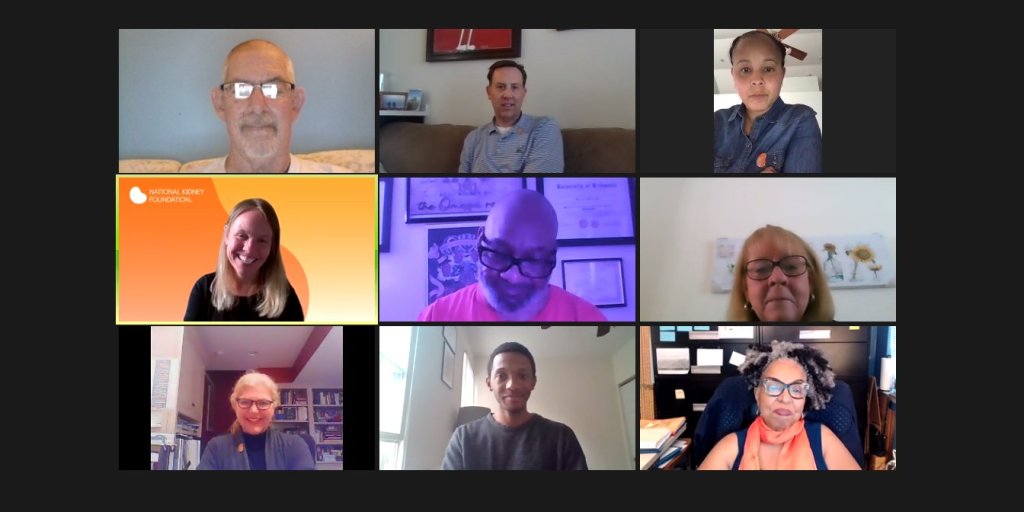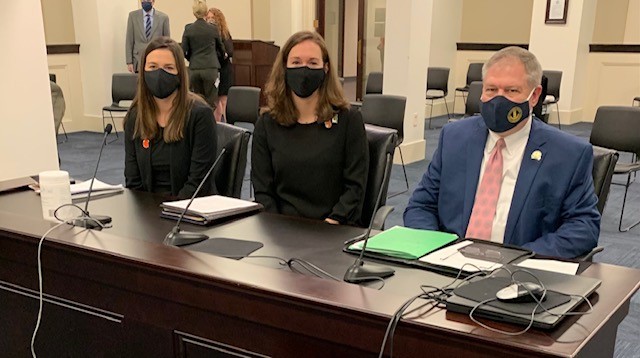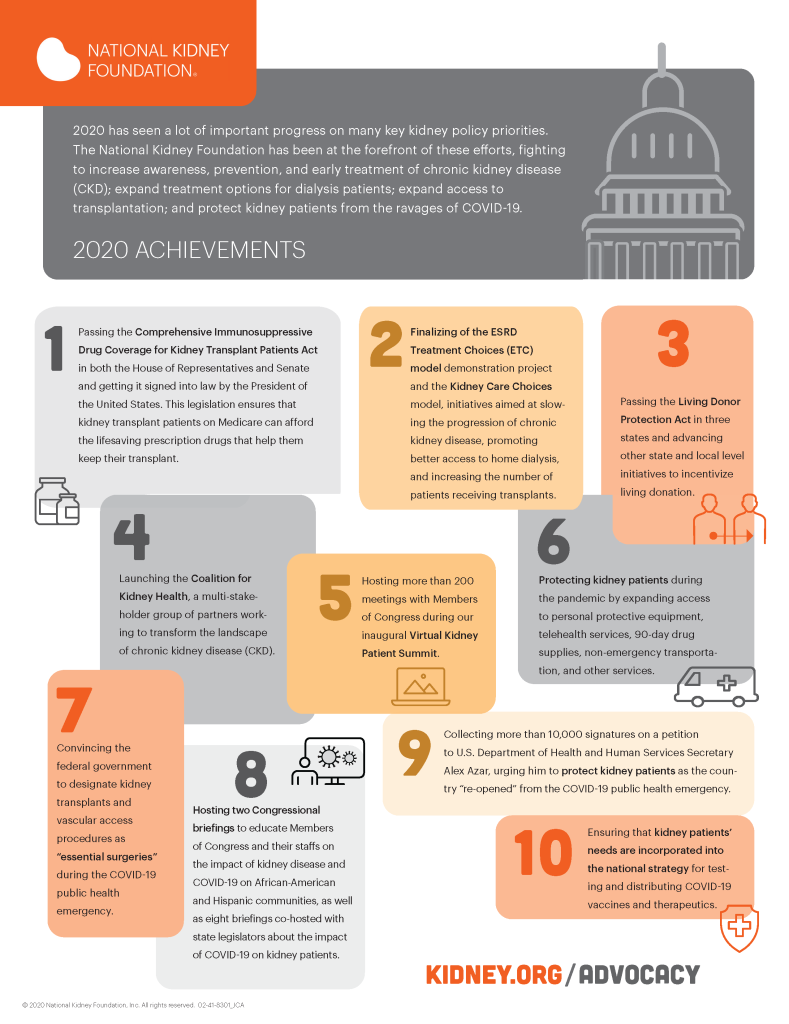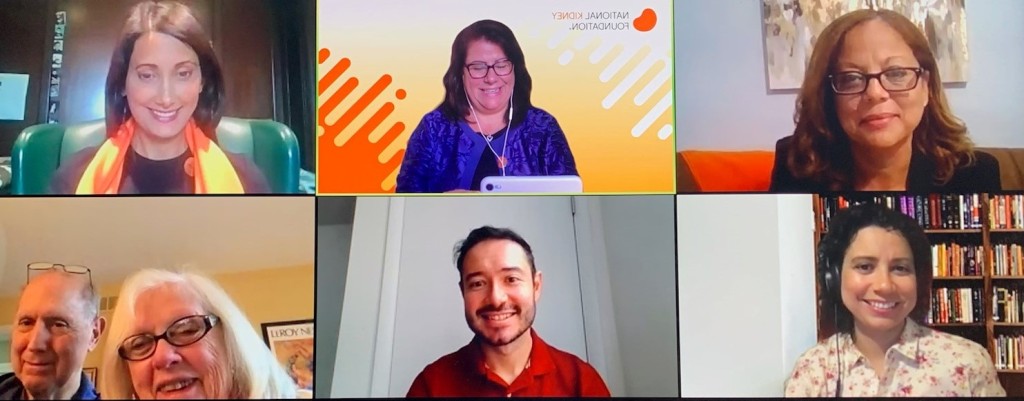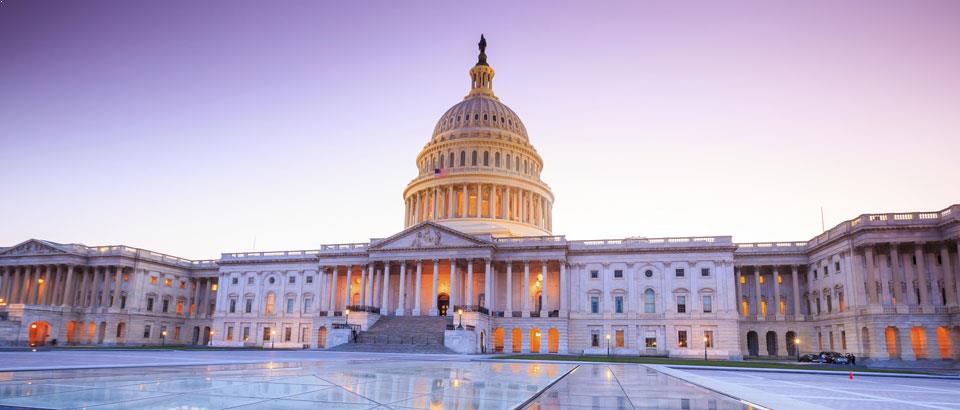
By Lauren Drew, NKF Director of Congressional Relations
March means signs of spring, filling out college basketball brackets, and if you are a congressional staffer, fielding a TON of appropriations requests as budgets for the coming fiscal year are being written. It’s a multi-step process that can take months, but as participants in our recent Virtual Kidney Patient Summit know, now is the time to be making your ask!
This year, NKF is making a major push to increase federal government funding for kidney disease research, public awareness, and early detection programs, particularly given that 90% of individuals with kidney disease are unaware they have the condition. Not knowing their status prevents patients from accessing the early treatments that can slow progression to kidney failure and prolong their life. Unfortunately, in recent years kidney program funding has greatly lagged, and the negative results are clear.
In 2020, the National Institutes of Health (NIH) funded research on causes and treatments for diseases that equated to over $2,000 per AIDS patient, over $300 per cancer patient, and $50 per heart disease patient. But despite having a larger patient population, NIH spent less than $20 per kidney patient. A ten-fold investment increase in cancer research has led to a 400% decrease in cancer deaths over the last 15 years. For that same period, death and disability from kidney disease increased 65%. Research matters, and without sufficient funding, kidney patients will not see the kinds of innovative treatments and new understandings of disease progression that can save lives. That is why we are requesting a significant increase in NIH funding , and specifically requesting an increase in funding for the National Institutes of Diabetes, Digestive, and Kidney Diseases (NIDDK) that’s greater than or commensurate with the increase to NIH as a whole.
Public awareness and early detection are also key to improving the lives of patients. That’s why NKF is also requesting that the Center for Disease Control and Prevention’s Chronic Kidney Disease (CKD) Initiative, which focuses on a comprehensive public health strategy to address the disease, receive $15 million to expand their activities. Activities funded under this program support disease surveillance, help raise awareness of CKD and its complications, promote early diagnosis and treatment, and improve the quality of life for people living with CKD. This funding increase could accelerate and amplify its activities to educate patients as well as clinical professionals, and spur innovation by those serving the kidney disease community.
As a patient advocacy group, we believe that spending money on improving public awareness and early detection while increasing research into kidney disease is justified solely by its positive impact on patients. However, it is also important to note that if we don’t address kidney disease early, the expense of treating kidney failure could ultimately bankrupt the Medicare Trust Fund. The Medicare program spends more than $130 billion – over 24 percent of total spending – on patients with kidney disease. End stage kidney disease, which affects only 1 percent of Medicare beneficiaries, accounts for 7 percent of Medicare spending. If we don’t take these steps, we could have over 800,000 patients in kidney failure by 2030. The time is now to advocate for increased funding to fight kidney disease, and NKF is proud to lead the charge on patients’ behalf. Click here to add your voice and ask your Members of Congress to join us.

